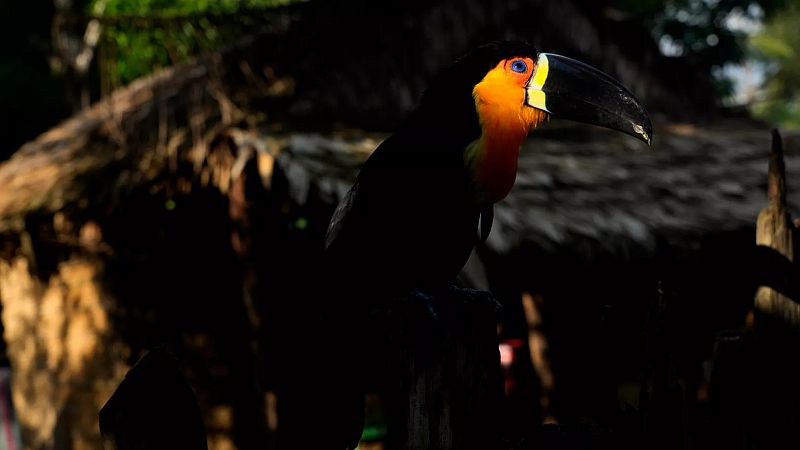
Extreme heat driven by climate change has caused tropical bird populations to decline by up to 38 per cent since the 1950s, scientists have warned.
A first-of-its-kind analysis published in the journal Nature Ecology and Evolution has used observed data and models to identify the effects of climate change on bird populations around the world.
Compared to a world without global warming, it found that intensifying heat extremes caused tropical bird populations to decline by 25 to 38 per cent between 1950 and 2020.
It is a “staggering decrease”, according to lead author Maximilian Kotz, a guest researcher at Potsdam Institute for Climate Impact Research (PIK) and researcher at Barcelona Supercomputing Centre (BSC).
Nearly every region reported a decline, but the biggest fall in bird numbers was seen in the tropics.
Extreme heat may explain bird decline in untouched forests
Tropical regions like the Amazon or Panama have seen bird populations plummet even in untouched rainforests. Previous research found that in a “relatively undisturbed” part of the Amazon Rainforest, bird numbers had declined by more than 50 per cent from 2003 to 2022.
Similar drops have also been seen in forests in Panama, but the causes of both were noted as unknown.
This study’s findings suggest that more intense heat extremes are likely to be the main factor behind these disappearing populations. The population declines in both of these tropical regions were of a similar magnitude to the research team’s estimates of the impacts of intensifying extreme heat.
Tropical birds are exposed to ten times the extreme heat conditions today than they were 40 years ago, according to the study, increasing from an average of three days a year to 30.
“Birds are particularly sensitive to dehydration and heat stress,” explains Kotz.
“Extreme heat drives excess mortality, reduced fertility, changing breeding behaviours and reduced offspring survival.”
Kotz adds that rising temperatures are pushing species out of the ranges they’ve naturally adapted to in a very short amount of time.
A first-of-its-kind attribution study
Until now, it has been difficult to distinguish how much climate change impacts biodiversity compared to more direct human impacts like deforestation.
But an emerging scientific field known as climate attribution uses a set of standardised techniques to figure out the exact impact of climate change on different parts of the climate system. It has been used to figure out how much more likely or intense extreme weather events are in a warming world, or even the influence of climate change on specific episodes of extreme ice loss from glaciers.
This research team believe this is the first time it has been used to attribute biodiversity losses to climate change.
Their methods indicate that in lower-latitude tropical regions, intensifying heat extremes are already having a bigger impact on declines in bird populations than deforestation or habitat loss.
“On the conservation side, this work tells us that in addition to protected areas and stopping deforestation, we urgently need to look into strategies for species who are more vulnerable to heat extremes to maximise their adaptation potential,” says Tatsuya Amano from the University of Queensland.
“That might mean ex-situ conservation work – so working with some populations in other locations.”



.png?w=600)



